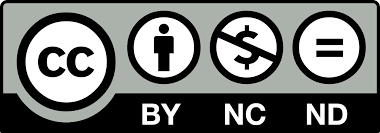Structure and Constituents of Digital Marketing Systems
Yuriy Robul
Faculty of Economic and Law, Odesa I. Mechnikov National University, Ukrainehttps://orcid.org/0000-0002-7299-9648
Abstract
The article addresses the study of digital marketing as a marketing system, the definition of its key elements, feeds and outputs, as well as levels of structure. At the moment, digital marketing is mostly considered at the micro level, while it is functioning at the level of the entire economy, and the systemic interaction between digital marketing and other social subsystems are not well understood. The result of the study is the conceptualization of the digital marketing model as a marketing system and the allocation of three levels of digital marketing. This opens up prospects for a better understanding of the processes of economic development, factors of influence and means to manage.
Keywords:
marketing, macromarketing, marketing systems, digital economy, digital marketingReferences
Alderson, W. (1964). A normative theory of marketing systems. In R. Cox, W. Alderson, & S. Shapiro (Eds.). Theory in marketing. Homewood: Richard D. Irwin, p. 92-108. Google Scholar
Bukht, R., & Heeks, R. (2017). Defining, Conceptualising and Measuring the Digital Economy. Development Informatics Working Paper. https://doi/org/10.2139/ssrn.3431732.(68). Google Scholar
Bassiouni, D.H., & Hackley, C. (2015). Digital Socialisation: Children’s Experiences as Consumers of Video Games. In: C. Shult, R. Benton. & O. Kravets (Eds.). Marketing as Provisioning Technology. Integrating Perspectives on Solutions for Suatainability, Prosperity, and Social Justice. The 40th Annual Macromarketing Conference. Chicago: Macromarketing Society, p. 189-193. Google Scholar
Chaffey, D., & Ellis-Chadwick, F. (2019). Digital marketing. Harlow, New York: Pearson. Google Scholar
Dahlman, C., Mealy, S., & Wermelinger, M. (2016). Harnessing the digital economy for developing countries. OECD Development Centre Working Papers, 334. Paris: OECD Publishing. https://doi/org/10.1787/4adffb24-en. Google Scholar
Fisk, G. (1967). Marketing systems; an introductory analysis. New York: Harper & Row. Google Scholar
Hunt, S.D. (1981). Macromarketing as a Multidimensional Concept. Journal of Macromarketing, 1(1), 7-8. Google Scholar
Hunt, S.D. (2012). Trust, Personal Moral Codes, and the Resource-Advantage Theory of Competition: Explaining Productivity, Economic Growth, and Wealth Creation. Contemporary Economics, 6(2), 4-19. Google Scholar
Kadirov, D. (2011). Macro-Systems Role of Marketing. Journal of Macromarketing, 31(4), 359-375. Google Scholar
Kannan, P.K., & Li, H.A. (2017). Digital marketing: A framework, review and research agenda. International Journal of Research in Marketing. 34(1), 22-45. Google Scholar
Kotler, P., Kartajaya, H., & Setiawan, I. (2017). Marketing 4.0: moving from traditional to digital. Hoboken, New Jersey: Wiley. Google Scholar
Layton, R.A. (2007). Marketing Systems - A Core Macromarketing Concepr. Journal of Macromarketing, 27(3), 227-242. Google Scholar
Layton, R.A. (2009). On Economic Growth, Marketing Systems, and the Quality of Life. Journal of Macromarketing, 29(4), 349-362. Google Scholar
Medeiros, F.G., & Costa, F.J. (2019). Uma proposta de visualização do sistema agregado de marketing turístico. Estudios Gerenciales, 35(152), 237-248. Google Scholar
Mittelstaedt, J.D., Kilbourne, W., & Mittelstaedt, R.A. (2006). Macromarketing as agorology: Macromarketing theory and the study of the agora. Journal of Macromarketing, 26(2), 131-142. Google Scholar
Vargo, S.L., & Lusch, R.F. (2004). Evolving to a New Dominant Logic for Marketing. Journal of Marketing, 68, 1-17. Google Scholar
Faculty of Economic and Law, Odesa I. Mechnikov National University, Ukraine
https://orcid.org/0000-0002-7299-9648
License

This work is licensed under a Creative Commons Attribution-NonCommercial-NoDerivatives 4.0 International License.
An Author declares that his paper has not been published before (under the same or another title, or is a part of another publication) and does not infringe copyrights of other persons**. At the same time, the Author transfers to the Publisher the exclusive right to publish and to circulate this work in print in the form of a non-serial journal publication and in a form of an electronic publication.
The journal is available on Creative Common license CC-BY-NC-ND






